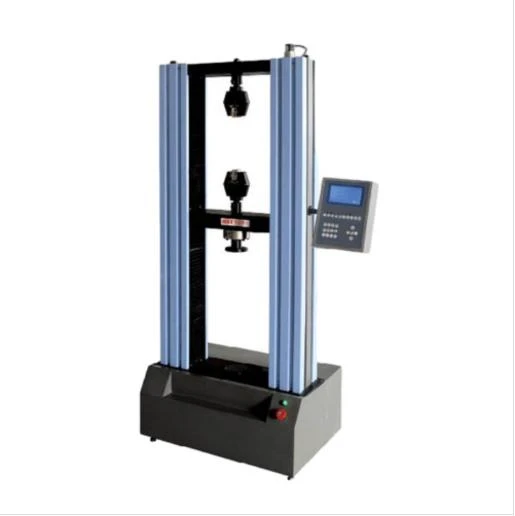resistance measuring instrument suppliers
Understanding Resistance Measuring Instrument Suppliers
In the ever-evolving world of electronics and engineering, resistance measuring instruments play a crucial role in ensuring that devices and systems operate within their designed parameters. This article delves into the significance of resistance measurement, the various types of resistance measuring instruments available, and the key factors to consider when selecting suppliers for these essential tools.
The Importance of Resistance Measurement
Resistance measurement is fundamental in numerous applications, ranging from electrical engineering to manufacturing processes. Resistance is a measure of the opposition that a substance offers to the flow of electric current. In various environments, accurate measurement of resistance ensures functionality, safety, and efficiency. For example, in circuit design, understanding the resistance of components affects how they interact, influencing voltage, current, and overall system behavior.
Moreover, in manufacturing environments, resistance measurement can indicate potential failures in components before they lead to larger issues. Regular testing and monitoring of resistance in machinery help in predictive maintenance, ultimately saving time and reducing costs.
Types of Resistance Measuring Instruments
There are several types of instruments used for measuring resistance, each suited to specific applications and levels of precision. Some of the most common types include
1. Ohmmeters These are devices specifically designed to measure resistance in ohms. They can be digital or analog and are widely used in both laboratory settings and fieldwork.
2. Multimeters A versatile tool, multimeters can measure voltage, current, and resistance. They are ideal for technicians and engineers who need a comprehensive testing solution in one device.
3. Micro-ohmmeters These are specialized instruments used for measuring very low resistances. They are essential in applications where low-resistance measurements are critical, such as in electrical connections or wire integrity tests.
4. Bridge Methods Wheatstone bridges and other resistance bridge methods offer high precision in measuring resistance and are typically used in calibration setups and metrology laboratories.
resistance measuring instrument suppliers

5. Resistance Temperature Detectors (RTDs) While primarily designed to measure temperature based on resistance, these instruments can also provide valuable data on resistance changes due to temperature variations.
Selecting Resistance Measuring Instrument Suppliers
Choosing the right supplier for resistance measuring instruments can significantly impact the quality of measurements and, ultimately, the success of the project at hand. Here are some critical factors to consider
1. Reputation and Experience Look for suppliers with a strong industry reputation and substantial experience. A well-established supplier is likely to offer high-quality products and customer support.
2. Range of Products A comprehensive selection of resistance measuring instruments is essential. This ensures that customers can find the right instruments for various applications without needing to source from multiple suppliers.
3. Technical Support and Service Good suppliers should offer robust technical support and after-sales service. This includes help with installation, calibration, and troubleshooting, which are vital in maintaining operational efficiency.
4. Quality Standards and Certifications Ensure that the instruments meet relevant standards and certifications for accuracy and reliability. Look for brands that adhere to international standards, such as ISO or ANSI, to ensure quality.
5. Pricing and Warranty Compare pricing among suppliers, but don’t sacrifice quality for cost. Additionally, consider the warranty offered on the instruments, as this reflects the supplier’s confidence in their products.
6. User Reviews and Testimonials Research customer feedback and reviews to gain insight into other users’ experiences. Testimonials can provide valuable information regarding performance and customer service.
Conclusion
Resistance measuring instruments are essential for various applications across multiple industries. As the demand for precision in measurements grows, selecting a reliable supplier becomes increasingly vital. By considering reputation, product range, technical support, quality standards, pricing, and user reviews, organizations can ensure they select the right partner to meet their resistance measurement needs. Ultimately, choosing the right supplier can lead to improved accuracy, reduced costs, and enhanced operational efficiency in engineering and manufacturing processes.
-
Why the Conductor Resistance Constant Temperature Measurement Machine Redefines Precision
NewsJun.20,2025
-
Reliable Testing Starts Here: Why the High Insulation Resistance Measuring Instrument Is a Must-Have
NewsJun.20,2025
-
Flexible Cable Flexing Test Equipment: The Precision Standard for Cable Durability and Performance Testing
NewsJun.20,2025
-
Digital Measurement Projector: Precision Visualization for Modern Manufacturing
NewsJun.20,2025
-
Computer Control Electronic Tensile Tester: Precision and Power for the Modern Metal Industry
NewsJun.20,2025
-
Cable Spark Tester: Your Ultimate Insulation Assurance for Wire and Cable Testing
NewsJun.20,2025
 Copyright © 2025 Hebei Fangyuan Instrument & Equipment Co.,Ltd. All Rights Reserved. Sitemap | Privacy Policy
Copyright © 2025 Hebei Fangyuan Instrument & Equipment Co.,Ltd. All Rights Reserved. Sitemap | Privacy Policy
